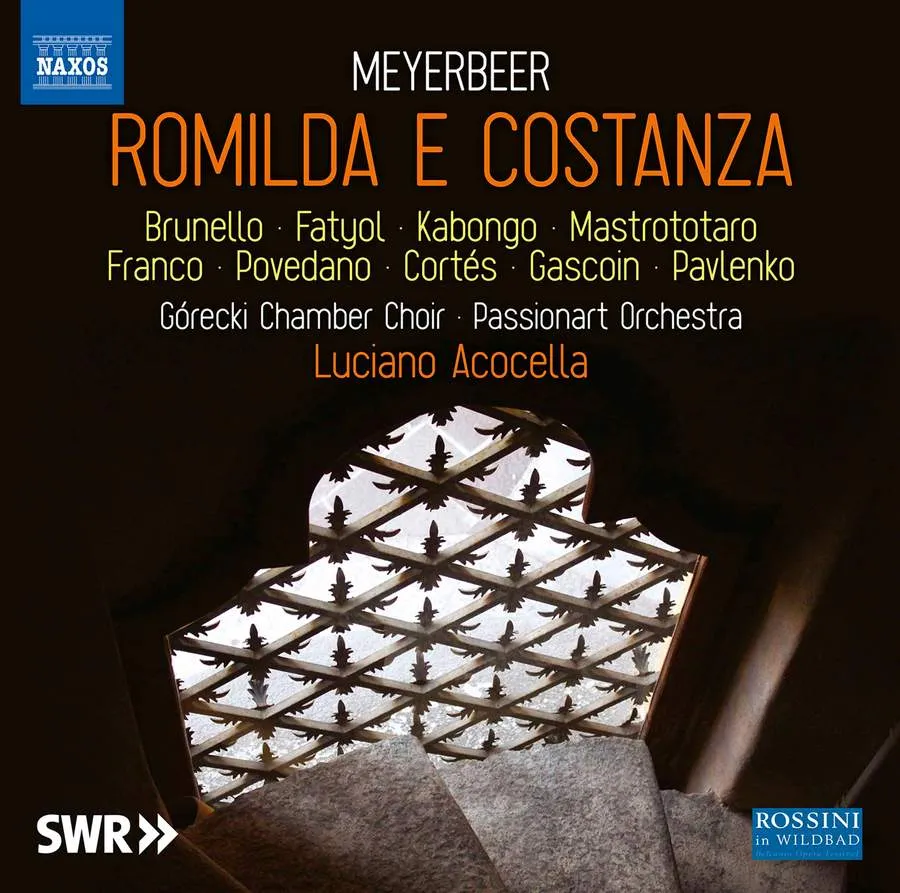
Meyerbeer Romilda e Costanza Patrick Kabongo, Javier Povedano, Chiara Brunello, César Cortés, Giulio Mastrototaro, Luiza Fatyol; Górecki Chamber Choir; Passionart Orchestra/Luciano Acocella Naxos 8.660495-97 173:50 mins
This two-act semi-serious melodrama, first performed in Padua in 1817, was the 26-year-old Meyerbeer’s first attempt at composing in Italian in a fiercely competitive market dominated by Rossini. Like Beethoven’s Fidelio from a few years earlier, it’s a rescue opera with a love triangle between the hero Teobaldo and his new and old loves, Romilda (disguised as Adelio) and Costanza.
The recording was made over three days at the Rossini in Wildbad Festival. The Passionart Orchestra under Luciano Acocella is brisk and well-paced, if a little unpolished; the dense orchestral writing needs more depth and clarity of sound for the individual instrumental colours to glow. The Górecki Chamber Choir is often overpowered by the orchestra.
The international cast offers some old-fashioned, slightly overblown singing. Soprano Luiza Fatyol is an assured, if weighty, Costanza; her dramatic scene in Act II is effective, but Meyerbeer’s rapid-fire, Rossini-inspired passagework needs more agility. Chiara Brunello’s Romilda is a proper contralto who bravely tackles this difficult role but is occasionally unsteady. Tenor Patrick Kabongo, singing Teobaldo, is blessed with a rich, bel canto sound. Giulio Mastrototaro sings Pierotto, the stock peasant with a suitably rustic tone. In the numerous ensembles, individual weaknesses are masked by the strength of the whole.
There is plenty to enjoy: drama, passion, plot and a satisfying ending. But a wider expressive range, with more vocal agility and choral-orchestral polish, would serve Meyerbeer’s fertile imagination better. Some listeners will prefer a full libretto and translation, rather than the scene synopses provided.
Natasha Loges

